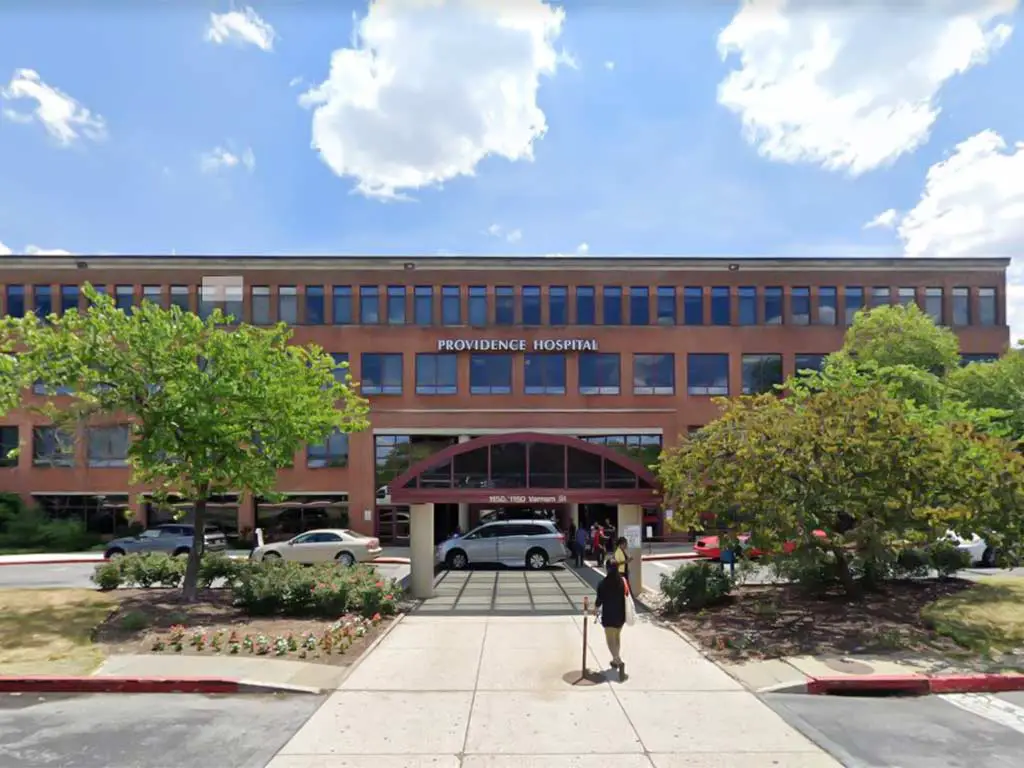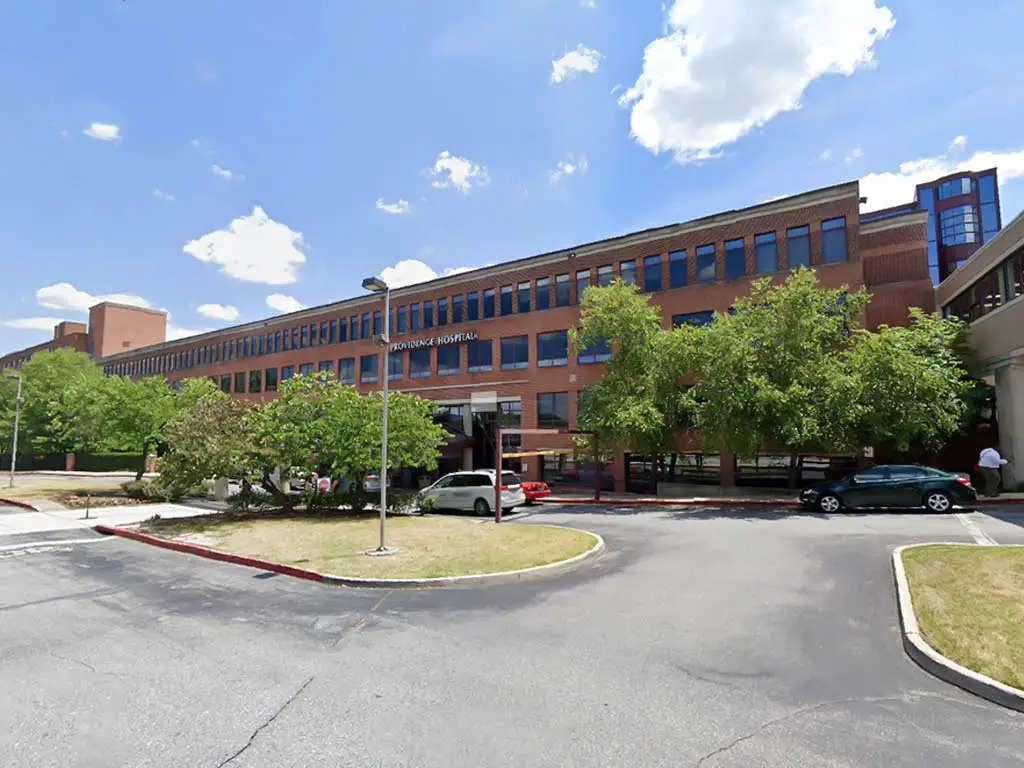Step back in time to explore the fascinating history of Providence Hospital in Washington, DC. Founded in 1861, Providence Hospital stands as a testament to the enduring legacy of healthcare in the nation’s capital.
With 408 beds and a rich heritage as the oldest hospital in DC, Providence Hospital has been a cornerstone of the community for over a century.
Discover the roots of this historic institution and its evolution into a private, not-for-profit healthcare system.
From its humble beginnings to its current status as a teaching hospital, Providence Hospital has played a vital role in shaping the healthcare landscape of Washington, DC.
Join us on a journey through time as we unravel the compelling story of Providence Hospital and its enduring commitment to providing quality care to the residents of the city.
Historical Overview of Providence Hospital

Providence Hospital holds a significant place in the history of healthcare in the United States.
Here’s a brief historical overview:
Early Beginnings and Foundational Years
In 1861, Providence Hospital was established, marking the beginning of its long-standing presence as the oldest hospital in Washington, DC.
As a pivotal institution with 408 beds, it quickly became an integral part of the community, providing essential healthcare services to residents in the area.
Its reputation for excellence and commitment to patient care have solidified Providence Hospital’s legacy in the Washington, DC area.
Over the years, it has continued to evolve and adapt to meet the changing needs of the community, ensuring its continued relevance and impact on healthcare provision.
Notable Milestones in Health Care
Through the years, Providence Hospital has witnessed significant milestones in healthcare delivery.
Evolving from its humble beginnings, the hospital transformed into a private, not-for-profit healthcare system, emphasizing its dedication to quality care and community service.
As a teaching hospital, it has continued to uphold its commitment to medical education and innovation.
The hospital’s enduring legacy underscores its vital role in shaping the healthcare landscape of Washington, DC, ensuring the well-being of generations of residents.
Key Figures and Leaders

Throughout its history, Providence Hospital has been led by numerous key figures who have played pivotal roles in shaping its mission, vision, and operations.
Here are some notable individuals:
The Role of Mother Joseph
Mother Joseph, a prominent figure in the history of Providence Hospital, was instrumental in its establishment in 1861.
As a skilled architect and a member of the Sisters of Providence, she played a crucial role in designing and overseeing the construction of the hospital.
Mother Joseph’s dedication to providing healthcare services to the community laid the foundation for the hospital’s enduring legacy of compassionate care and medical excellence.
Her visionary leadership and commitment to serving the underserved population shaped the hospital’s mission and values.
Mother Joseph’s legacy continues to inspire healthcare professionals and community members alike, reflecting her lasting impact on Providence Hospital’s history in Washington DC.
Dr. James Maxwell
Dr. James Maxwell, a renowned physician, served as the first chief of staff at Providence Hospital. His visionary leadership and commitment to advancing medical care contributed significantly to the hospital’s growth and reputation.
Dr. Maxwell’s innovative approaches to patient care and medical education set high standards for the institution, shaping its development and fostering a culture of excellence.
His dedication to implementing cutting-edge medical practices and prioritizing patient-centered care solidified Providence Hospital’s position as a leading healthcare provider in Washington DC.
Dr. Maxwell’s legacy continues to inspire current and future medical professionals in upholding the hospital’s esteemed reputation.
Sister Mary Euphrasia Taylor
Sister Mary Euphrasia Taylor, a compassionate and dedicated leader, was instrumental in expanding Providence Hospital’s reach and impact in the community.
As the head of nursing services, she implemented pioneering nursing practices and standards, ensuring quality patient care and professional development within the hospital.
Sister Taylor’s tireless efforts and dedication to healthcare excellence exemplified the hospital’s mission of serving with compassion and integrity.
Her visionary leadership and commitment to upholding the highest standards of patient care greatly contributed to the hospital’s reputation for excellence in healthcare services.
Sister Mary Euphrasia Taylor’s legacy continues to inspire current and future generations in the field of nursing and healthcare.
Dr. William Stewart Halsted
Dr. William Stewart Halsted, a trailblazing surgeon and innovator, made significant contributions to surgical practices at Providence Hospital.
His revolutionary techniques and commitment to surgical precision revolutionized the field of surgery and elevated the hospital’s reputation as a center of surgical excellence.
Dr. Halsted’s legacy of excellence and innovation continues to inspire generations of healthcare professionals at Providence Hospital.
His innovative approaches to surgery not only transformed patient care but also set new standards for surgical education and training.
Dr. Halsted’s lasting impact on Providence Hospital’s history is evident in the continued pursuit of excellence and advancement in surgical practices at the institution.
Innovations and Contributions

Providence Hospital has been a catalyst for numerous innovations and contributions in the field of healthcare throughout its history.
Here are some notable ones:
Pioneering Firsts in Washington Health Care
Providence Hospital in Washington, DC, has a rich history of pioneering firsts in healthcare. Since its establishment in 1861, it has been at the forefront of medical innovation in the region.
The hospital’s commitment to excellence led to several groundbreaking achievements that have shaped the landscape of healthcare in Washington, DC, and beyond.
One of the notable pioneering firsts by Providence Hospital was its early adoption of advanced surgical techniques. The hospital became known for its innovative approaches to surgery, setting new standards for patient care and outcomes.
These advancements not only benefited the local community but also contributed to the broader advancement of surgical practices in the field of medicine.
Advances in Medical Education
In addition to its groundbreaking medical practices, Providence Hospital has made significant contributions to medical education over the years.
The hospital’s emphasis on teaching and training the next generation of healthcare professionals has been instrumental in shaping the future of medicine in Washington, DC.
Providence Hospital’s commitment to medical education is evident through its partnerships with academic institutions and its support for continuing education programs.
By providing hands-on training opportunities and access to cutting-edge medical technologies, the hospital has helped foster a culture of learning and innovation among healthcare professionals.
Through its focus on advancing medical education and fostering a spirit of innovation, Providence Hospital continues to be a leader in healthcare excellence, making lasting contributions to the field of medicine and the community it serves.
Community Impact and Expansion
Providence Hospital has had a profound impact on its community and has undergone significant expansion over the years to better serve its constituents.
Here’s a look at its community impact and expansion efforts:
Partnerships and Community Health Initiatives
Providence Hospital in Washington, DC has a long-standing commitment to community health and partnerships.
Collaborating with various organizations and community leaders, the hospital has initiated numerous health programs and outreach initiatives to address the diverse needs of the local residents.
By partnering with schools, non-profits, and government agencies, Providence Hospital has been able to create a holistic approach to community health, focusing on prevention, education, and access to quality healthcare services.
Expansion Projects and Growth
Over the years, Providence Hospital has undergone several expansion projects to meet the growing healthcare needs of the community.
These projects have included the development of new facilities, the introduction of advanced medical technologies, and the recruitment of top healthcare professionals.
By expanding its services and footprint, Providence Hospital has been able to enhance patient care, increase accessibility, and improve healthcare outcomes for individuals across Washington, DC.
Economic and Social Impact
The presence of Providence Hospital in the Washington, DC community has led to significant economic and social benefits.
As a major employer in the region, the hospital has created job opportunities, supported local businesses, and contributed to the overall economic development of the area.
Additionally, through its focus on community health and well-being, Providence Hospital has played a crucial role in improving the quality of life for residents, reducing healthcare disparities, and fostering a healthier, more rich community.
Sustainable Practices and Environmental Stewardship
In line with its commitment to community impact, Providence Hospital has embraced sustainable practices and environmental stewardship.
Implementing green initiatives, energy-efficient technologies, and waste reduction strategies, the hospital aims to minimize its environmental footprint and promote a healthier, greener community.
By prioritizing sustainability, Providence Hospital not only contributes to environmental conservation but also sets an example for other healthcare institutions to follow, creating a more sustainable future for generations to come.
Preservation of Hospital Heritage
Preserving the heritage of Providence Hospital is essential for honoring its rich history and legacy while ensuring that its values continue to inspire future generations.
Here’s how the hospital can preserve its heritage:
Importance of Archives in Retaining History
To safeguard the legacy and heritage of Providence Hospital in Washington, DC, preserving historical archives is crucial.
These archives hold valuable records, documents, and artifacts that narrate the hospital’s journey since its inception in 1861.
By maintaining these archives, you ensure that future generations can delve into the hospital’s rich history, understand its contributions to healthcare, and appreciate its impact on society.
Archives play a pivotal role in retaining history by chronicling significant events, medical advancements, key figures, and community partnerships that have shaped Providence Hospital.
These records not only serve as a historical reference but also provide insights into the hospital’s evolution, emphasizing its core values of compassion, excellence, and community service.
Frequently Asked Questions
How long has Providence Hospital been around?
Providence Hospital has been around since 1861 when it was established in Washington, DC.
Did the US buy Providence Hospital?
Providence Health System was acquired by USA Health, not the US government.
What was the largest hospital in the Civil War?
Satterlee General Hospital, built in 1862 in Philadelphia, was the largest Union hospital during the Civil War.
Is Providence a good hospital?
Providence St. Vincent Medical Center has been recognized as one of America’s 50 Best Hospitals, placing it in the top 1% nationwide.
What was the first black hospital in DC?
Freedmen’s Hospital, established in 1862 in Washington, DC, was the first black hospital, providing medical care to freed slaves post-Civil War.
Conclusion
Providence Hospital in Washington, DC, stands as a beacon of healthcare excellence with a rich legacy dating back to 1861.
Through the dedication of visionary leaders and a commitment to innovation, Providence Hospital has set the standard for compassionate care, medical advancements, and community engagement.
By preserving its historical archives, the hospital ensures that its impactful journey continues to inspire future generations in the realms of healthcare, education, and environmental stewardship.
Providence Hospital’s enduring legacy serves as a testament to the power of compassion, collaboration, and continuous evolution in shaping the landscape of healthcare in the Washington, DC area and beyond.




Allison Brice